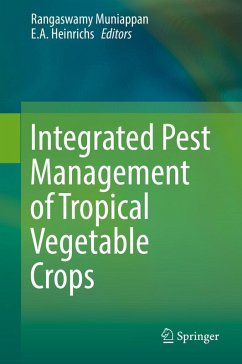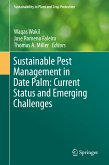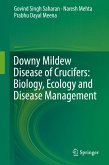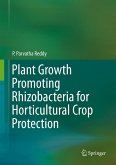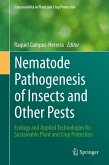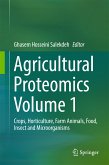Crop loss due to pests is a major constraint to meeting food needs of the expected world population of ten billion by 2050. Integrated Pest Management offers an approach that is economically and socially acceptable, environmentally safe, and improves health standards. Its main thrust is to reduce the use of chemical pesticides by finding and introducing alternate technologies that include physical, cultural, and biological methods. This book identifies flaws in the definition, identification, implementation, and evaluation of IPM, and provides information on development of IPM components and packages that are adoptable in developing countries. It emphasizes the need for dissemination of information on IPM technologies and working with value chains and farmers from production to distribution.
The chapter on viruses of vegetable crops covers several diseases diagnosed in recent years and their management options. Similarly, the chapter on Trichoderma, a beneficial fungus, provides both basic and applied information. IPM is crop, site, and season specific. The IPM packages described for crucifers, naranjilla, okra, onion and potato can be adopted by farmers with necessary adjustments. IPM is a dynamic process and requires modifications according to changes and needs. Chapters on IPM practices in Bangladesh, Nepal, and Uganda show how these packages have been modified and adapted to various vegetable crops. The economic benefits derived by adoption of IPM in developing countries are illustrated.
This book provides essential information for researchers and extension staff of national governments and development specialists in value chain projects who participate in crop protection activities in developing countries.
Dieser Download kann aus rechtlichen Gründen nur mit Rechnungsadresse in A, B, BG, CY, CZ, D, DK, EW, E, FIN, F, GR, HR, H, IRL, I, LT, L, LR, M, NL, PL, P, R, S, SLO, SK ausgeliefert werden.
Es gelten unsere Allgemeinen Geschäftsbedingungen: www.buecher.de/agb
Impressum
www.buecher.de ist ein Internetauftritt der buecher.de internetstores GmbH
Geschäftsführung: Monica Sawhney | Roland Kölbl | Günter Hilger
Sitz der Gesellschaft: Batheyer Straße 115 - 117, 58099 Hagen
Postanschrift: Bürgermeister-Wegele-Str. 12, 86167 Augsburg
Amtsgericht Hagen HRB 13257
Steuernummer: 321/5800/1497
USt-IdNr: DE450055826
Bitte wählen Sie Ihr Anliegen aus.
Rechnungen
Retourenschein anfordern
Bestellstatus
Storno

